The Top 30 Underrated Movies of 2002
The year of Baggins, Potter and Spider-Man also had a wealth of lesser-known movies. Here’s our pick of 2002's underappreciated films...
At the top of the box office tree, 2002 was dominated by fantasy and special effects. Peter Jackson’s The Lord of the Rings: The Two Towers made almost a billion dollars all by itself, with Harry Potter and the Chamber of Secrets taking second place, and Sam Raimi’s Spider-Man not too far behind.
In many ways, 2002 set the tempo for the modern Hollywood blockbuster landscape, which has changed relatively little in the decade since. A quick look at 2013‘s top 10, for example, reveals a markedly similar mix of superhero movies with Iron Man 3 still ruling the roost at the time of writing, followed by effects-heavy action flicks and family friendly animated features.
As usual in these lists, we’re looking at the less celebrated films of 2002–the kinds of movies that not only didn’t make the top 10, but also failed to get either the financial or critical attention they deserved. Compiling such a list is incredibly tricky, especially when it comes to films that didn’t do particularly well in cinemas, but have become adored by a legion of fans since. So apologies if your favorite isn’t included…
Without further ado, here’s our pick of 30 underappreciated films from 2002…
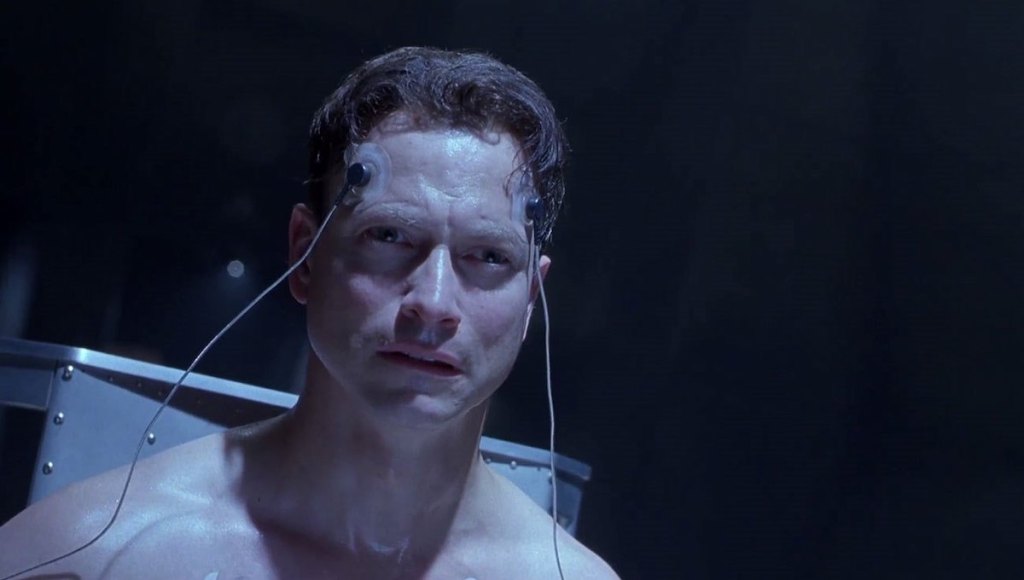
30. Impostor
When thinking about the movie adaptations of visionary sci-fi author Philip K. Dick, it’s likely that a handful of films will spring to mind: most obviously Blade Runner and Total Recall, followed by Minority Report and A Scanner Darkly, then maybe the less-than-brilliant Paycheck and Next.
The sorely overlooked Impostor, directed by Gary Fleder and based on the 1953 short story of the same name, isn’t in the same league as the very best PKD adaptations, but it’s still full of the twists and existential crises you’d expect. It’s set in a distant future where invading aliens are capable of creating replicant spies that are almost indistinguishable from humans–that is, until they detonate with deadly effect.
Gary Sinise plays a weapons designer who falls under suspicion of the authorities, and spends the rest of the film attempting to convince everybody he’s not a deadly weapon forged by extraterrestrials. Madeleine Stowe, Mekhi Phifer, and Vincent D’Onofrio round out a great supporting cast, and Mark Isham provides some decent music.
Oddly, Impostor actually looks less expensive than its not-bad $40 million budget might imply, but it’s the quality of the acting (in particular from the ever-reliable Sinise) and the story that makes this a science fiction film well worth watching.
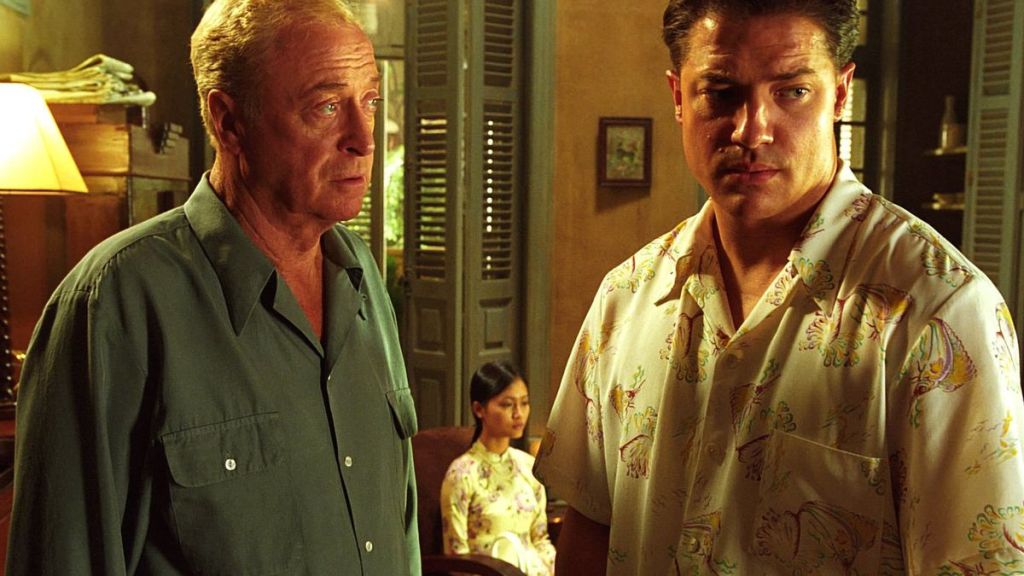
29. The Quiet American
The first of two Phillip Noyce movies that we’re going to talk about on this list, The Quiet American is an adaptation of Graham Greene’s novel and casts Michael Caine as an experienced British reporter and Brendan Fraser–who once had a great knack for mixing in blockbuster roles with interesting projects such as this–as a young American. And both foreigners are attracted to the same Vietnamese woman in Saigon.
Caine’s performance is what anchors the film and, unsurprisingly, he was nominated for an Oscar for it. But there are qualities dripping right through the rest of the movie. The political subtext adds weight whilst there’s a feeling of unease that Noyce successfully cultivates throughout. Beautifully shot, The Quiet American is a treat that grips from pretty much the get go.
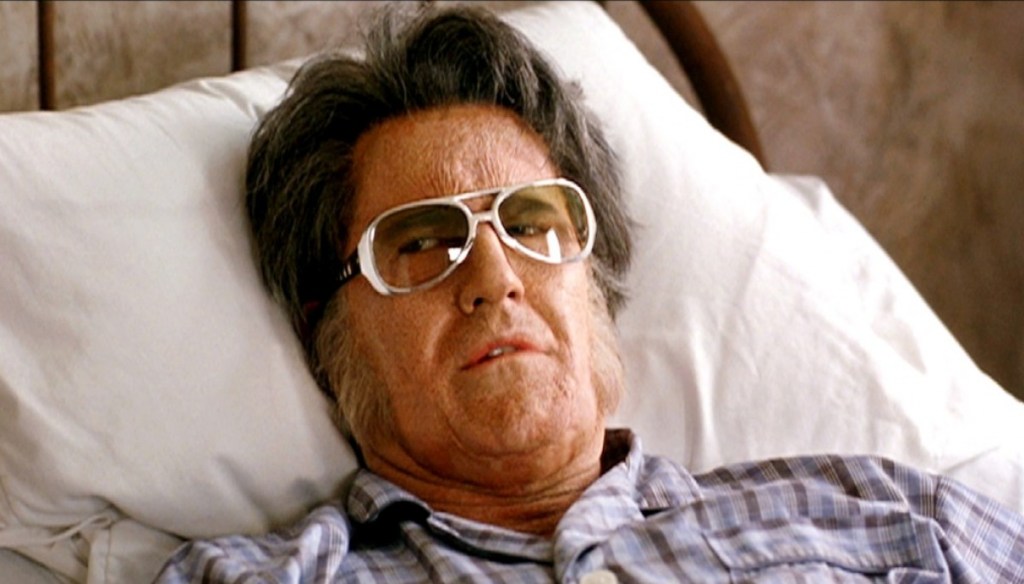
28. Bubba Ho-Tep
Full disclosure: the oddball premise behind Bubba Ho-Tep made us approach it with some trepidation when it appeared on disc years ago, but there’s far more going on in Don Coscarelli’s horror comedy than mere goofy charm. But first, that premise: Bruce Campbell plays an elderly Elvis Presley, who after faking his death is now living out his final days in a godforsaken nursing home. Unfortunately, the reanimated corpse of an Egyptian mummy is roaming the corridors in search of tasty souls to devour.
Beyond the puerile yet often very funny comedy moments, there’s an unusually touching story tucked away in here about the inevitability of death and the struggle to find a sense of dignity and peace in old age–weighty themes for a horror movie, not least one packed wall to wall with flying killer insects, souls dragged from backsides, and African American acting legend Ossie Davis playing an elderly man who claims to be John F. Kennedy in disguise.
Campbell was born to play the part of an ornery old Elvis, and Bubba Ho-Tep is surely one of his finest and most moving performances. It’s also a fine film from Coscarelli, who specializes in little-seen cult films–for a more recent underappreciated gem, track down a copy of the John Dies at the End, another sterling cocktail of comedy and gore.
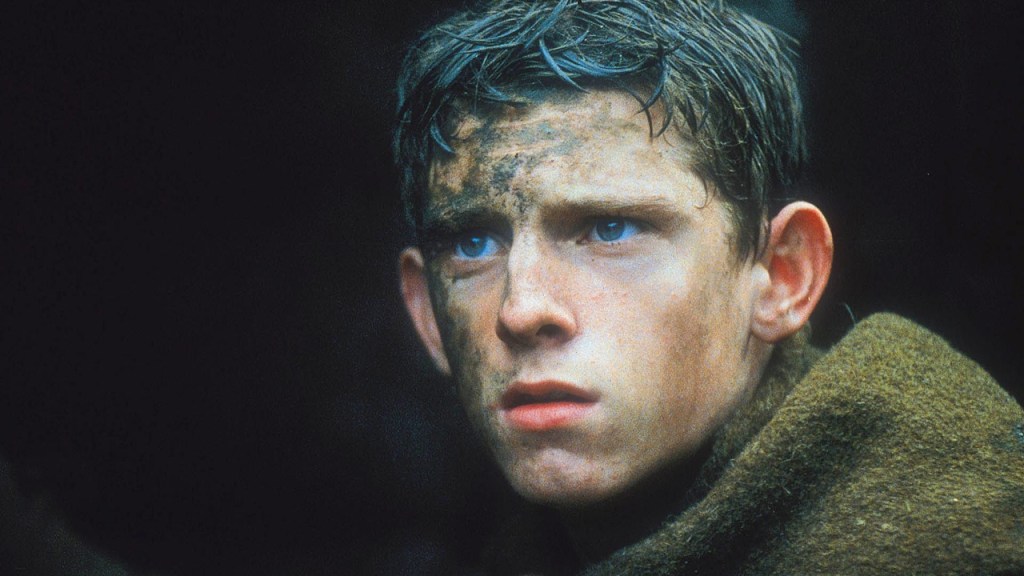
27. Deathwatch
Horror writers are always looking around for new and unusual situations, and while plenty of genre films have been set in World War II, relatively few have tackled the Great War, which tore through Europe between the years 1914 and 1918. Writer and director Michael J. Bassett’s Deathwatch plunges us deep into the trenches and barbwire-strewn battlefields of this devastating war.
Jamie Bell, Hugo Speer, Laurence Fox, and Andy Serkis are among the British troops who become lost among a network of German trenches, and slowly realize that something evil is stalking them. Bassett’s brilliantly chosen cast ably depicts the madness and trauma of conflict, and that’s before the supernatural horrors have even kicked in.
Admittedly, the story doesn’t always satisfy as it should, but we’d argue that critics were a bit too harsh on what is an atmospheric and disturbing film–full of grime and squalor, its plot is forgettable, but its atmosphere is difficult to shake.
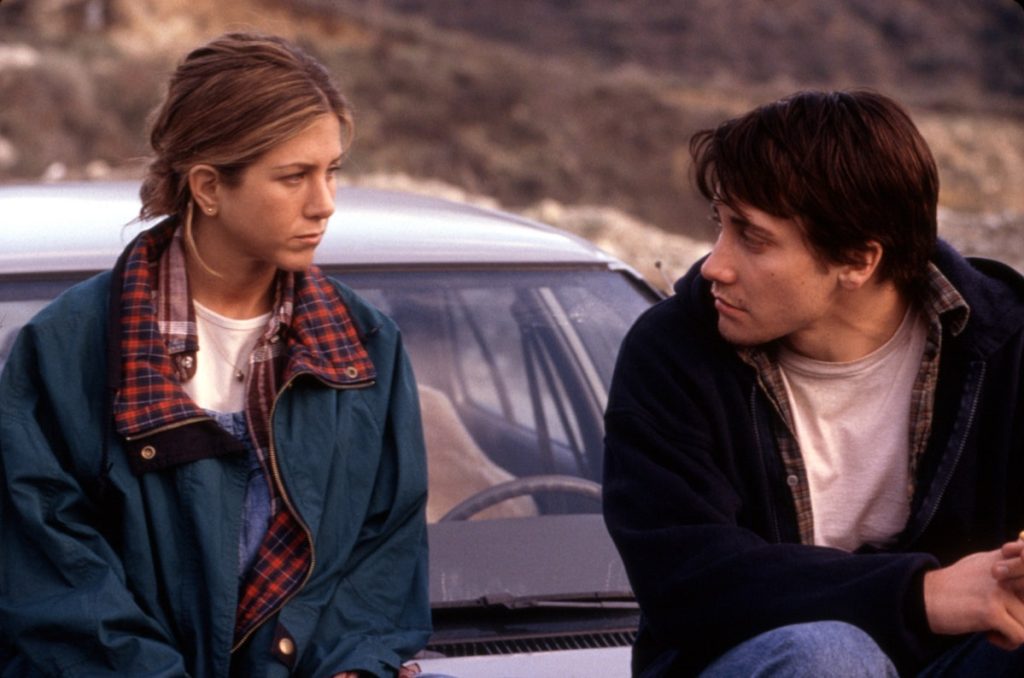
26. The Good Girl
Aim as many barbs as you like at Jennifer Aniston’s movie career–as some tabloid columnists seem determined to do–but she’s consistently had a knack for choosing interesting movie projects to tackle. The Good Girl, from Miguel Arteta, was arguably the first time she’s got the critical notices she deserved, but even before this, she’d signed up to do movies such as The Iron Giant, Office Space, and She’s The One. We never got the memo that we weren’t supposed to like her, we’re glad to say.
The Good Girl is written by Mike White (who also penned the wonderful Chuck & Buck), and follows Aniston’s shop worker who starts up a relationship with an unusual young helper in said shop, played by Jake Gyllenhaal. There’s a sadness to Aniston’s character, and to the entire film as a consequence, as she’s trapped in an unhappy marriage and stuck in an unhappy life.
Quality support comes from the brilliant John C. Reilly, and there’s a good role for Zooey Deschanel too, who does some of the comedy lifting here. But credit to Aniston for taking on and making such a rounded lead role her own. And credit too to director Miguel Arteta–who would go on to make Cedar Rapids and Youth in Revolt–for keeping the tone of such a delicate story.
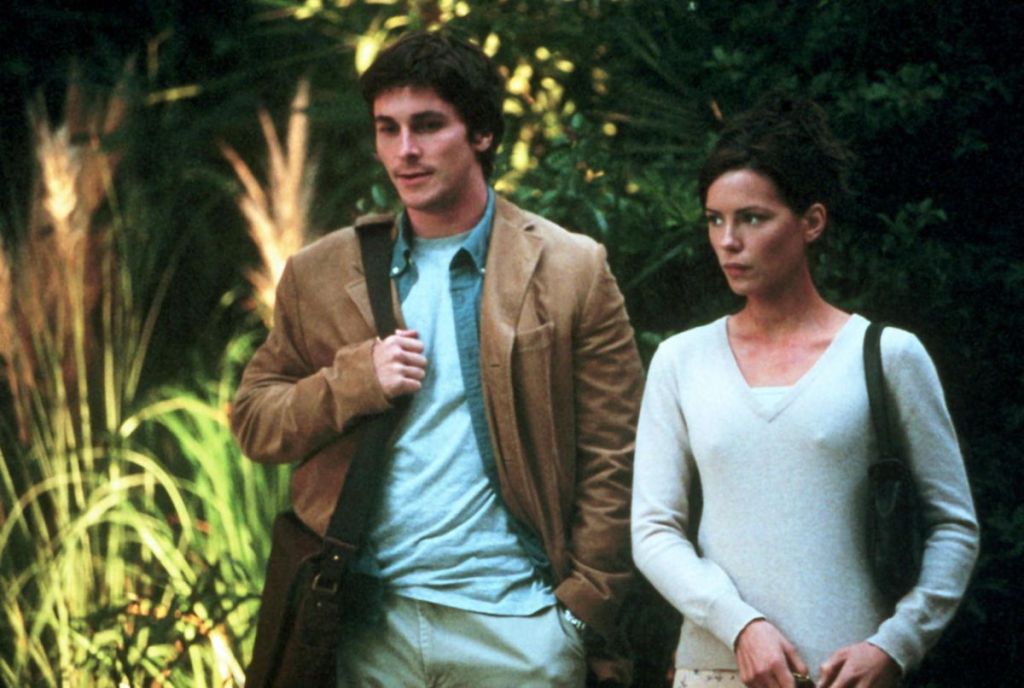
25. Laurel Canyon
It’s somewhat dull to say that Frances McDormand has put in another excellent acting performance here, given that we can’t remember a time when she hasn’t. Laurel Canyon is one of her lesser-seen projects though, and that’s something of a shame. She stars alongside Christian Bale and Kate Beckinsale in a film that sees a young couple move into the home of the husband-to-be’s mother. Bale and Beckinsale play the couple, McDormand is the mother, and if you suspect that tensions and inappropriateness ensue, then you’re on the right track.
It’s a film with problems, certainly, but Laurel Canyon still has enough going on to make it more than justify a watch. Furthermore, McDormand is quite brilliant, and writer/director Lisa Cholodenko–who would go on to make the wonderful The Kids Are All Right–wrings plenty out of the setup.
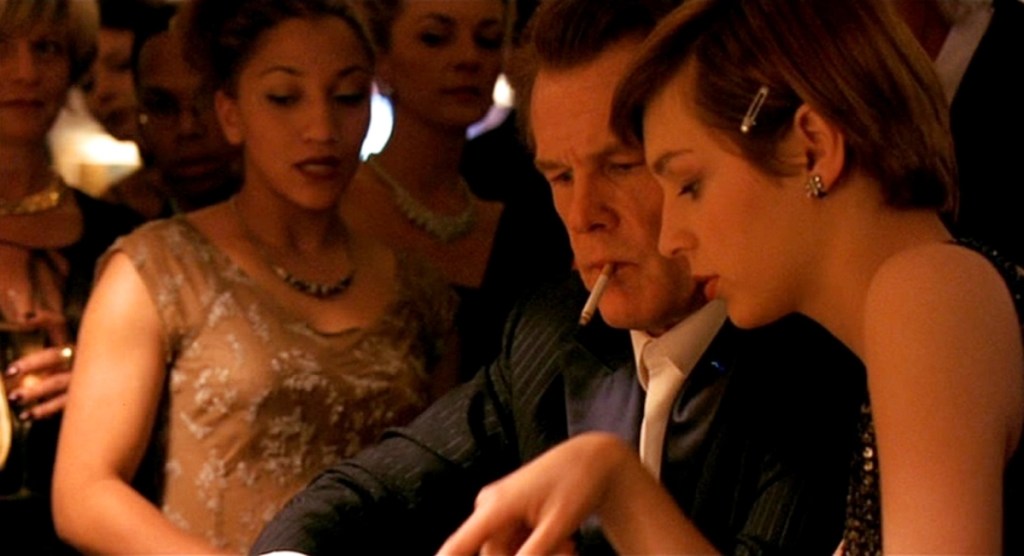
24. The Good Thief
A taut, twisty thriller from Neil Jordan, The Good Thief also gives a rare and much appreciated leading role to Nick Nolte. He takes the title role, with his character living in France, battling addictions and failing to resist the chance to take on a particularly lucrative job in Monte Carlo.
Jordan makes the most of his unusual French setting, and his stylish film is well cast even beyond Nolte. There’s an uncredited turn from Ralph Fiennes for a start, but credit to Nutsa Kukhianidze and Tcheky Karyo too.
Yet this is Nolte’s film in a troubled, three-dimensional role that he inhabits with utter conviction. It’s a very loose remake of a French movie by the name of Bob le Flambeur, and a good one at that. If you’re a sucker for a good crime drama, with an outstanding lead performance, The Good Thief is a really compelling piece of work.
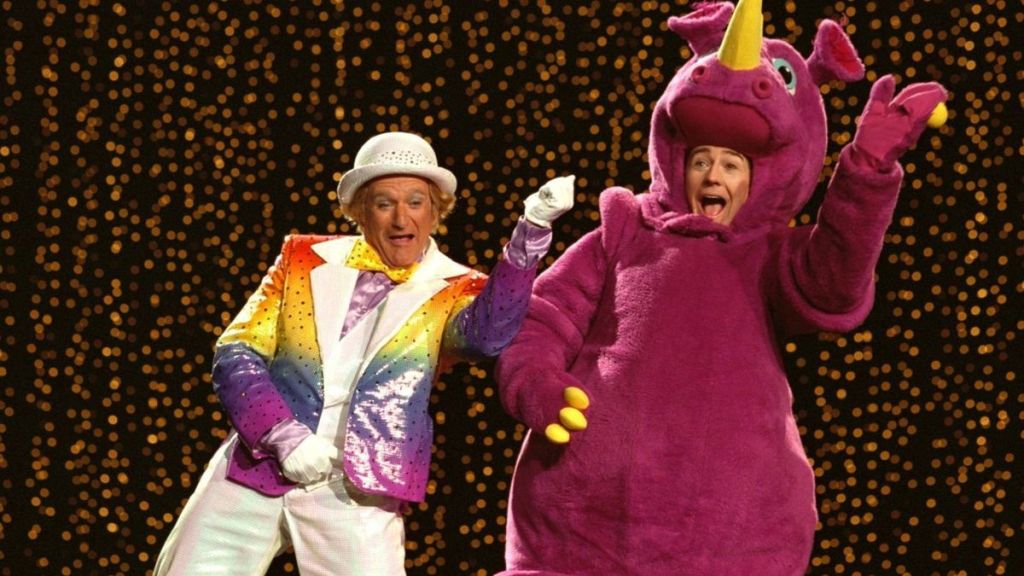
23. Death to Smoochy
Back in the 1990s and early 2000s, FilmFour was well on its way to becoming a British powerhouse. It funded or part-funded a stream of interesting movies, and gave many British filmmakers a much needed break. By 2002 though, after a string of disappointments, it needed a hit. In fact, it needed its $5 million investment in Danny DeVito’s Death to Smoochy to pay off. The total budget for the movie was $55 million. The film would gross less than $10 million at the box office. FilmFour shut down in its original form at the end of 2002.
Death to Smoochy attracted some vitriolic reviews at the time, and we can’t stand before you and declare it a full-on classic. But it is an interesting, challenging piece of work, headlined by Robin Williams as he was seeking out darker material. Co-starring Edward Norton, the movie follows a children’s TV host who is fired and replaced by a Rhino character by the name of Smoochy. It’s a very grown-up and satirical dark comedy which ensues, and one far better than its reputation suggests. It may forever be entwined with the story of an era coming to an end, but that’s no reason to write an ambitious, difficult film off.
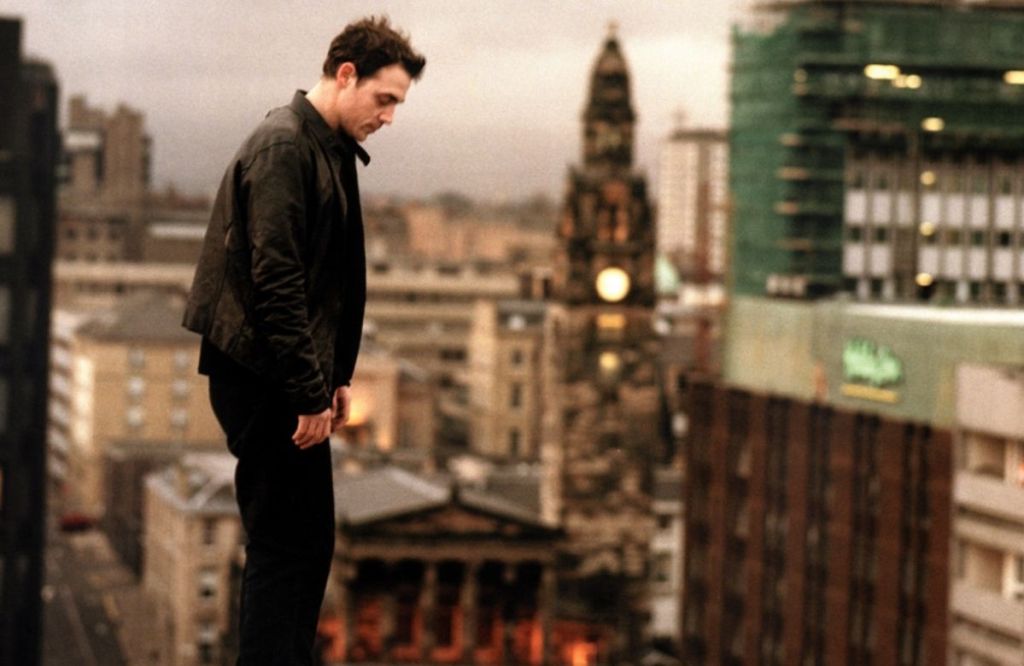
22. Wilbur Wants To Kill Himself
A great title and a really good film, this. Wilbur, played by James Sives, is not happy and feels suicidal. Along with his brother though, he inherits his father’s secondhand bookshop. Located in Glasgow, said bookshop is visited by Lisa McKinlay’s Mary (along with her mother), and there’s a connection between her and Wilbur that the film moves on to explore.
It’s a moving piece of cinema that doesn’t just explore the character of Wilbur, but also the people he affects (his brother in particular). Uniformly excellent performances help, but the screenplay from director Lone Schefig and Anders Thomas Jensen is exquisitely pitched, finding dark humor in the midst of what could have been a very melancholy film.
Schefig would go on to make the excellent An Education (and she also tackled the film adaptation of One Day), but this arguably remains her best film. It’s crying out to be discovered by a larger audience, and at the time of writing is just £4 at Amazon. That, friends, is a bargain.
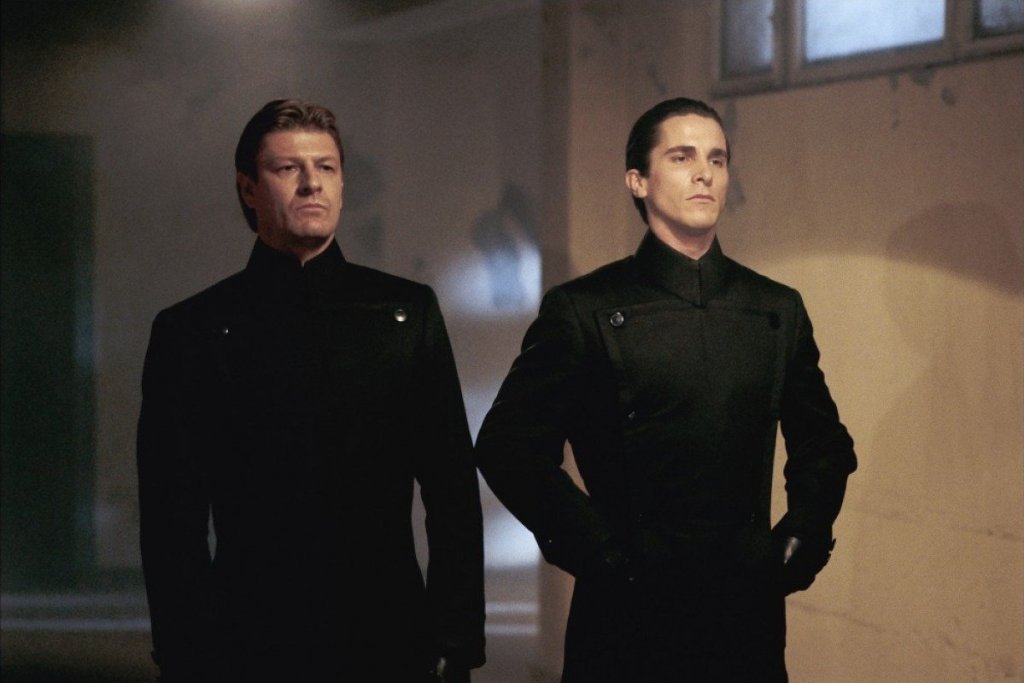
21. Equilibrium
A few years before Christian Bale took on the mantle of the Dark Knight, he donned a black outfit of another kind for this futuristic action flick by Kurt Wimmer. The stylish coats and stylized violence gave the impression of a low-rent Matrix rip-off in trailers, but in reality, it’s more akin to George Orwell with added martial arts.
Bale plays John Preston, a particularly talented member of a government force tasked with wiping out any cultural artifact held by so-called “sense offenders.” In this particular future dystopia, all emotion is kept strictly in check, and stimulating things like books, films, and paintings are rooted out and destroyed by Preston and his order of Grammaton Clerics. But when Preston stops taking his state-supplied drugs (designed to further suppress emotion) and sides with an underground resistance group, he starts to use his ‘Gun Kata’ fighting skills to fight the Totalitarian establishment instead.
Throwing together ideas from all over the place–a bit of Ray Bradbury’s Fahrenheit 451 here, a healthy dose of John Woo there–Equilibrium couldn’t be described as an original movie, but it is a compelling one. Wimmer’s use of Berlin locations creates an appropriately chilly, imposing atmosphere, and there’s a great cast alongside Bale, including Emily Watson, Sean Bean (you can probably guess how his character fares), and William Fichtner.

20. The Cat Returns
Fans of Studio Ghibli’s output will probably be wondering what on earth this entry’s doing here, but we’d argue that, for many people in the West, The Cat Returns is among the least well-known of the Japanese animation house’s works. About a young girl who has an unusual ability to talk to cats, The Cat Returns is a kind of feline Alice in Wonderland, as the heroine ventures into a mystical Cat Kingdom.
Extremely funny and beautifully animated, The Cat Returns is full of charm and personality–the chubby, slightly surly cat Muta, in particular, is an exquisite creation. A kind of spin-off from Studio Ghibli’s earlier Whisper of the Heart (Baron is the returning cat from that film, hence the title), The Cat Returns isn’t the best of Studio Ghibli’s films, but it’s still seldom less than captivating.
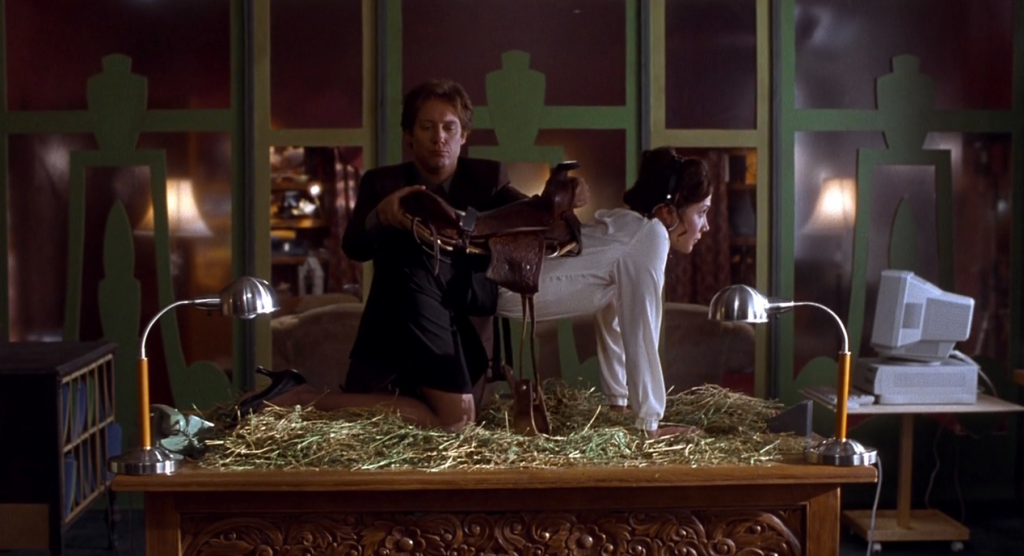
19. Secretary
A drama about a meek secretary dominated by her boss could so easily have emerged as a smirking, puerile effort, but writer and director Steven Shainberg’s Secretary is instead a mature and elegant film, and laces its kinky subject matter with a pleasing thread of wit. Maggie Gyllenhaal plays the secretary in question while James Spader (who’s no stranger to quirky or difficult roles) is her boss.
Slow-burning, yet constantly compelling, Secretary explores its central relationship impeccably, with Gyllenhaal and Spader both excellent as likable people whose fetishes happen to overlap. The film’s conclusion is a little too muted to satisfy, perhaps, but the journey toward it is eminently watchable.
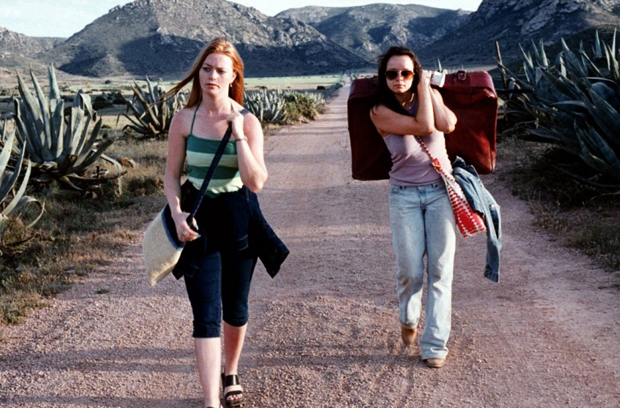
18. Morvern Callar
We’re not quite sure what went wrong behind the scenes of the forthcoming Jane Got a Gun, but we hope the negative publicity surrounding director Lynne Ramsay’s abrupt exit from the production doesn’t prevent her from making more things in the future, because films like 1999‘s Ratcatcher, 2011‘s We Need To Talk About Kevin, and this one, adapted from the novel of the same name, show just how talented a filmmaker she is.
A simple story about a young woman (played by Samantha Morton) who puts her own name on the manuscript of her late boyfriend’s unpublished novel, Morvern Callar is a brilliantly acted and superbly made, expertly treading the line between comedy and pathos. Although it made a pittance on its limited theatrical release, Morvern Callar is well worth tracking down on disc–Samantha Morton’s turned in plenty of great performances in her career so far, but this one is easily among her best.
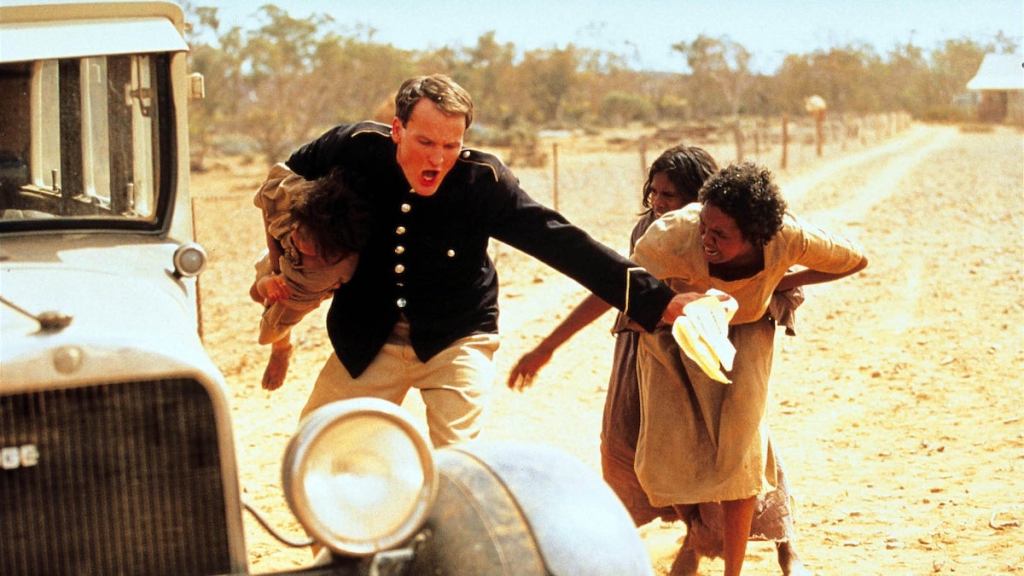
17. Rabbit-Proof Fence
We’ve already talked about The Quiet American here, but Phillip Noyce also saw his adaptation of Doris Pilkington’s Rabbit-Proof Fence released in 2002. This, too, is an excellent film, set in 1930s Australia and following three young Aboriginal girls who are taken from their homes to work as servants. The three girls escape and begin the 1500-mile walk home along the fence line.
Based on a true story, and with real footage added at the end, Rabbit-Proof Fence finds levity in the midst of a horrible tale, and the young leads–playing opposite Kenneth Branagh’s officer leading the charge to track them down–add a warm and very human feel to the film. It’s an accomplished and strongly realized take on the story, deliberately taking its time–even appreciating its brief 94 minute run–to get its moments across.
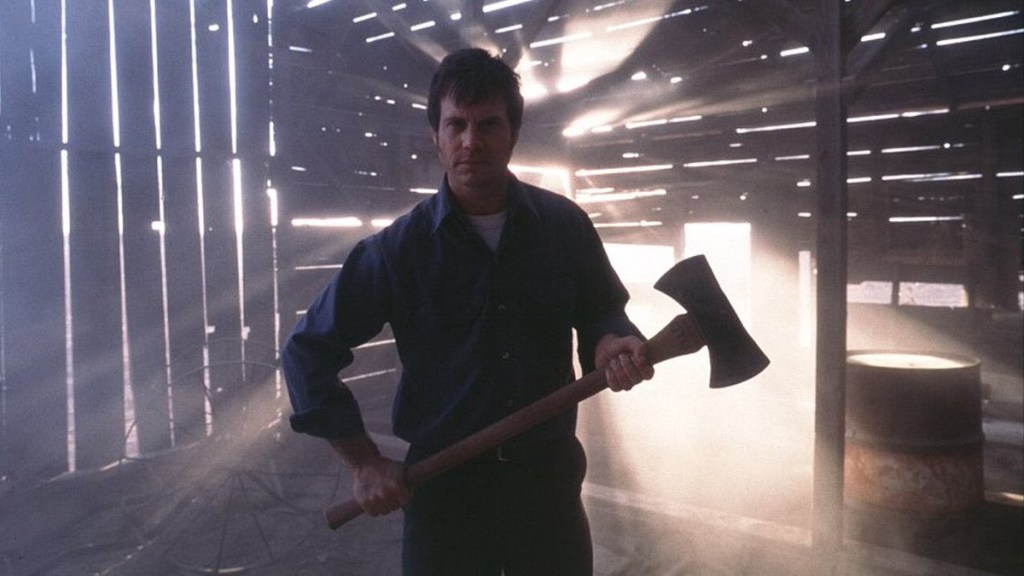
16. Frailty
Save for one festival appearance at the end of 2001, Frailty was rolled out properly in 2002, hence we’ve included it in this round-up rather than our 2001 piece. Wherever we’d put it though, Bill Paxton’s directorial debut is a piece of work that gets under the proverbial skin.
Paxton and Matthew McConaughey take the lead roles, and Frailty centers on a heavily religious father and the relationship with his two sons. You might think there’s a very slight Carrie parallel in there, but Frailty is a different kind of horror. There’s an awful lot going on under the surface here, and Paxton’s quite uncompromising in his approach. He trades off just a little bit of accessibility in favor of a deeper film.
It crosses genres, refuses to paint the father–played by Paxton himself–as an outright villain, and doesn’t shirk some of the big moments, which we won’t reveal here. It’s a difficult film to watch, but ultimately, a very rewarding one.
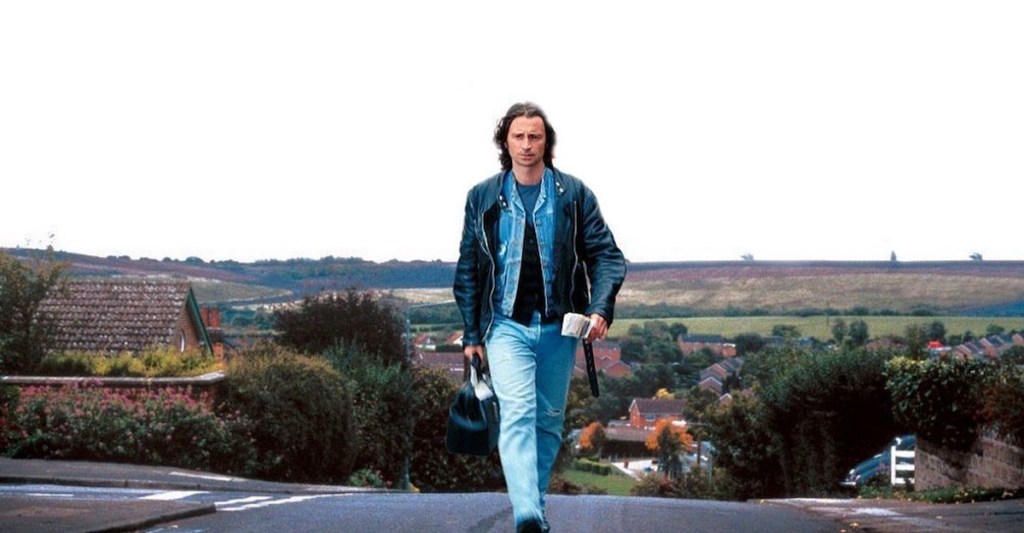
15. Once Upon a Time in the Midlands
There aren’t enough Westerns set in the East Midlands, and not for the first time, it leaves us thankful that Britain has a director such as Shane Meadows willing to right this particular wrong. Meadows, who co-wrote the film with Paul Fraser, actually puts together something more akin to a romantic comedy than a Western here, in truth, and a really very funny one. The catalyst is when Rhys Ifans’ character proposes to his girlfriend on television. The problem? Robert Carlyle’s Jimmy happens to be watching the television at that very moment, and he thinks said girlfriend–played by Shirley Henderson–should be with him. Thus off he heads to Nottingham to try and win her back.
It’s arguably Meadows’ lightest film–he’d follow it up with Dead Man’s Shoes and This Is England–and frequently a very funny one. Furthermore, there are super performances all round, and you end up buying even the more farfetched moments of the film. There’s no shortage of heart to this one, and whilst Once Upon a Time in the Midlands feels just a little like the forgotten Shane Meadows film, it’s one of the best British films of the early 2000s.

14. One Hour Photo
There’s a tragic, unsettling atmosphere to One Hour Photo, which was marketed as a thriller but emerges as a character study about Robin Williams’ lonely photo developer Sy Parrish. Single, lonely, and obsessive, Sy becomes infatuated with the seemingly perfect family whose pictures he develops month after month. And when Sy notices a fissure running down the middle of this family he idolizes, he grows increasingly irrational.
Featuring one of Williams’ very best performances, One Hour Photo is a quietly affecting drama, with its sense of loneliness and detachment underlined by some magnificent production design–the store where Sy works is like a light-bathed fantasy world, which contrasts sharply with the austere emptiness of his home. A film which did only middling business, One Hour Photo was compromised by some studio-enforced edits and reshoots but still emerges as a potent piece of filmmaking thanks to Mark Romanek’s intelligent writing and direction, and of course Williams’ bravely unshowy, leading turn.

13. Cypher
This sci-fi thriller directed by Vincenzo Natalli is efficient and absorbing, with a great leading turn from Jeremy Northam. He plays an ordinary, somewhat beige former accountant who’s drawn into a murky world of corporate espionage, only to be dragged into an even deadlier intrigue involving engineered identities and betrayal. At its strongest when Northam’s character uncovers the layers of lies and corporate double dealing, and at its weakest when it devolves into a more straightforward action film at the end (at which point the very low budget becomes apparent), Cypher‘s nevertheless a cracking sci-fi conspiracy, full of paranoia worthy of vintage Philip K. Dick.

12. Infernal Affairs
A knotty and enthralling Hong Kong thriller about a criminal who infiltrates the police force, and an undercover cop who passes himself off as a Triad gangster, Infernal Affairs is something of a classic. A hit in Hong Kong (where it spawned two very good sequels), it’s since become a cult film in the West. So why include it here? Because, like so many great foreign language films, it was the subject of a remake (Martin Scorsese’s The Departed in 2006), which seems like as good a reason as any to recommend the original.
Loaded with tension, briskly told and immaculately filmed, Infernal Affairs is one of the best crime thrillers in any language. Tony Leung and Andy Lau make for a great pair of co-stars in a story of deception and violence, and are arguably a match for Leonardo Di Caprio and Matt Damon in the U.S. version. To his credit, Scorsese didn’t go down the usual remake path, and instead forged a film of his own with Infernal Affairs’ premise as his inspiration. For us, though, the HK original just edges it as the superior movie.

11. Sympathy For Mr. Vengeance
Many cinemagoers in the west first encountered the work of director Park Chan-Wook through his 2003 thriller, Oldboy. But Sympathy For Mr. Vengeance came first, the opening installment in Park’s Vengeance trilogy, which concluded with 2005‘s Sympathy for Lady Vengeance.
If you’ve seen Oldboy, you’ll probably know what to expect: sumptuous visuals, an uncompromisingly brutal story, and graphic violence. Shin Ha-kyun plays a deaf-mute factory worker who resorts to unpleasant measures to pay for his desperately ill sister’s kidney transplant, and brings ruin on himself in the process. A disturbing yet hypnotic film, Sympathy For Mr. Vengeance depicts a grim world where there are no heroes and villains, only poor choices and dire consequences.
Both Oldboy and Lady Vengeance made around 10 times as much at the box office, but Sympathy For Mr. Vengeance is arguably their equal. If you haven’t seen Sympathy or Lady yet, do track them down before someone in Hollywood greenlights another ill-advised remake or two.
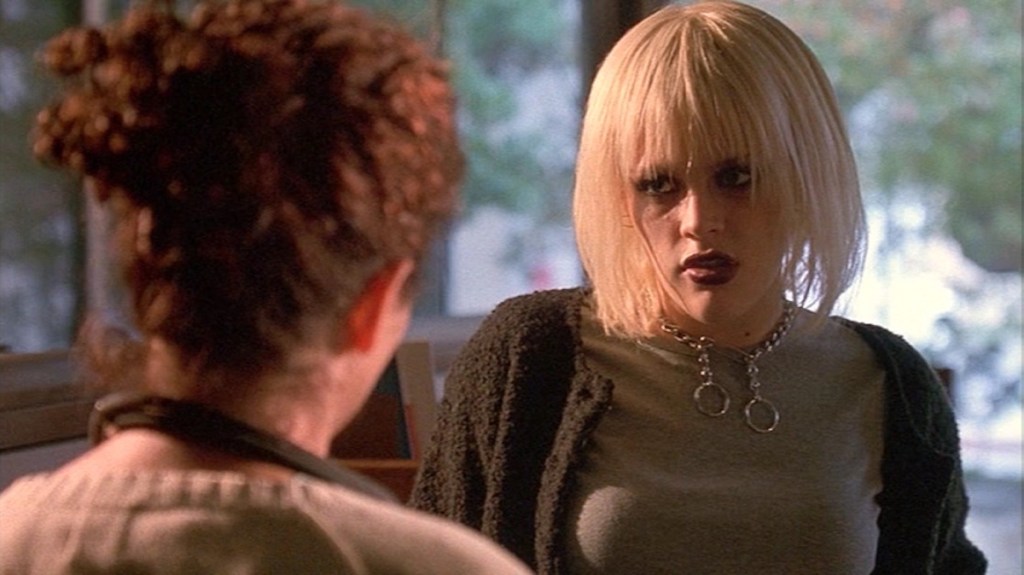
10. Home Room
Busy Philipps remains arguably best known for her excellent work on the television show Freaks & Geeks, but she’s one of the cornerstones of this hard-edged indie drama, ultimately based in part on the Columbine High School massacre of April 1999. Its uncomfortably close release to those events certainly can’t have helped Home Room find much of an audience, although the director made a point of showing the staff, students, and parents at the school a preview of the film.
And this is a bold piece of work, written and directed by Paul F. Ryan, that attempts to discover the reasons behind such atrocities. The focus is very much on the aftermath, with the people left behind to cope with what happened, and the film frames this through Philipps’ Alicia and Erika Christensen’s Deanna.
Home Room never goes for easy answers and that doesn’t help make it any more comfortable to watch. But it does feel like a more important piece of work than it’s generally regarded as. It’s a very human response to something so inhuman, pitched and played very well. It’s not easy to track down, but it is worth the effort.

9. The Dangerous Lives of Altar Boys
A real gem, this. Based in part on the novel by the late Chris Fuhrman, The Dangerous Lives of Altar Boys follows a bunch of boys at a Catholic school in the 1970s. Said boys–who included Emile Hirsch and Kieran Culkin–get up to the usual assortment of pranks. But they also pool their efforts for their own comic book, and find themselves constantly at odds with Jodie Foster’s Sister Assumpta.
British director Peter Care’s intelligent adaptation of the source material intersperses animation with live-action, and he balances the coming of age themes with real intelligence. It arrives in a run of films that were winning acclaim for their portrayal of school life, yet The Dangerous Lives Of Altar Boys deserves to stand toe to toe with many of them. As it happened, it only received a limited cinema rollout, and has been left to be found on DVD. Ignore the terrible cover of the British disc release: this is excellent.
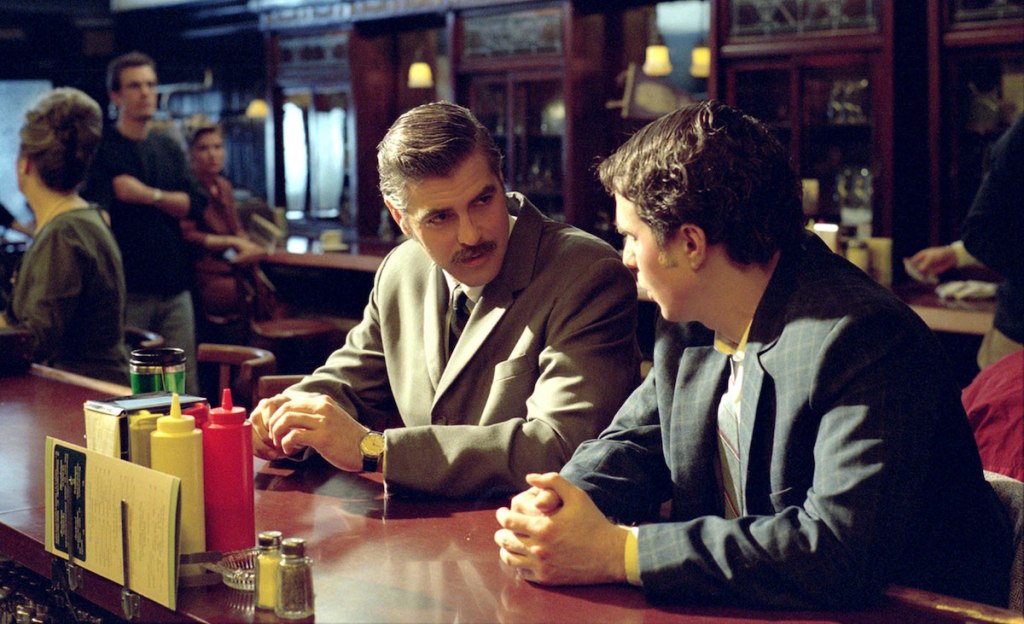
8. Confessions of a Dangerous Mind
George Clooney’s second movie as director, Good Night And Good Luck, attracted serious Oscar attention. Deservedly, too. Confessions of a Dangerous Mind, his first, is similarly rooted in real life events, but is a very different, very offbeat beast. It also boasts arguably Sam Rockwell’s best screen performance to date, outside of Moon.
Rockwell plays game show host and producer Chuck Barris, a man who claimed to have been hired as an assassin by the CIA. And as a one-star review at Amazon perfectly puts it, “If you want to watch a film about a guy whose life was so vacuous that he had to try to make it interesting by writing an autobiography pretending to be employed as a hitman by the CIA, then this film is for you.”
Charlie Kaufman (of Adaptation fame) penned the script for this one, and Clooney handles it maturely, frequently destabilizing the audience and heightening the often uncomfortable comedy. Confessions of a Dangerous Mind may not, ultimately, be to everyone’s tastes. But there is a strong argument for it being Clooney’s best film as director yet. And it does reward as many viewings as you are willing to give it.

7. The Magdalene Sisters
We talked about Peter Mullan back we looked at the underappreciated movies of 1998, with his superb dark comedy, Orphans. For his third film as director, the darkness remained but the comedy is long gone, as Mullan tackled the haunting story of The Magdalene Sisters. He focuses on four teenage girls who were sent to what was known as the Magdalene Asylum in Ireland. Each was regarded as a sinner by their families, and they were put under the strict stewardship of the Madalene nuns.
It’s a superb film, but good grief, it’s a diffiult one to watch. The despicable treatment of the young women, all under a banner of religion, is hard to stomach. And, of course, the story is very much based on truth.
Mullan doesn’t direct very often, but when he does, he has a legitimate claim to be called one of the very best contemporary British directors. And this one might just be his best.
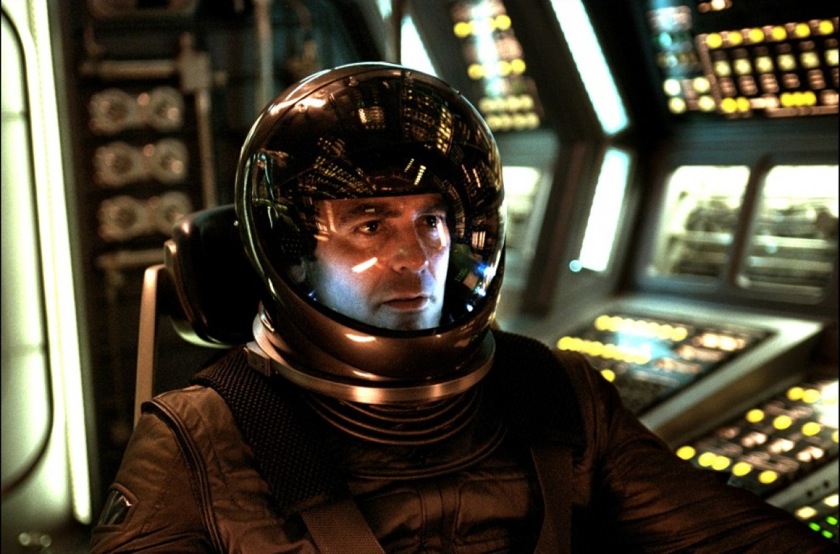
6. Solaris
Stanislaw Lem’s stunning science fiction novel Solaris has been adapted multiple times–once for Russian television, once for the big screen by the great Andrei Tarkovsky, and then one further time by Steven Soderbergh. Where the novel was a kind of detective story on a space station, Soderbergh’s Solaris is a meditative sci-fi love story. George Clooney plays a psychologist who’s despatched to a space station orbiting the sentient planet Solaris and is haunted by the appearance of his late wife made flesh.
Beautiful to look at and sublimely acted by Clooney and Natascha McElhone as his ethereal revenant wife, Solaris is shot through with an atmosphere of sadness and regret–a tone which predictably failed to help its box office performance, but also makes for a cerebral, unusual and quite brilliant sci-fi film.
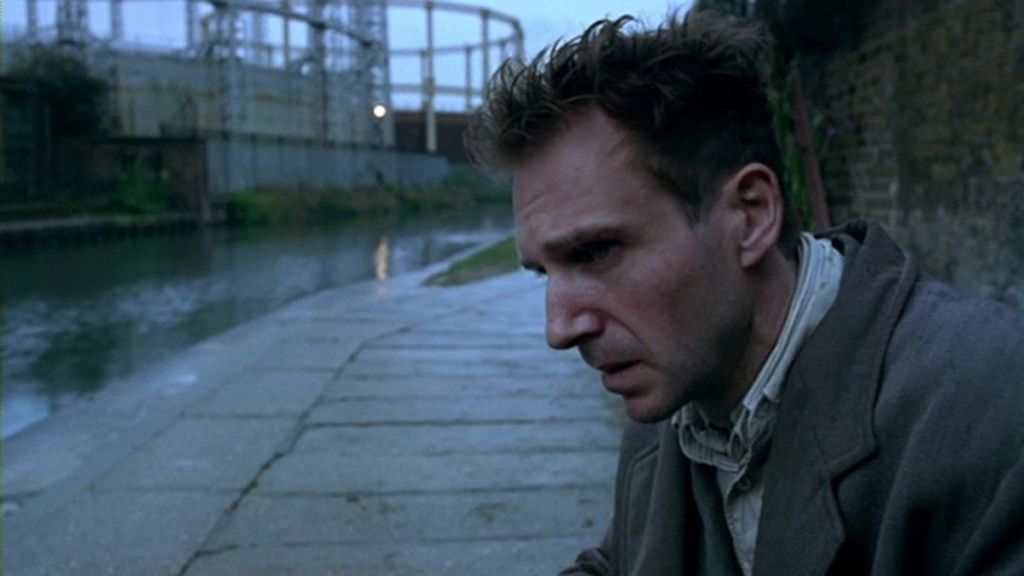
5. Spider
Ralph Fiennes puts aside any hint of Hollywood glamour for the title role in David Cronenberg’s minimal, eerie drama, and his performance is all the more remarkable for its lack of dialogue–the inner turmoil of a disturbed man (with a disturbing past) is conveyed through his awkward movements and expressions.
A moving and unshakeably sad journey through the character’s fragmented childhood memories, Spider is impeccably shot and acted with brilliant supporting performances from Gabriel Byrne and especially Miranda Richardson, who pops up multiple times through the film in different roles. Well received by critics after a screening at Cannes, Spider was given a mystifyingly low-key general release which made it nigh-on impossible to track down in cinemas.
It’s well worth tracking down on disc, though, with Fiennes turning in a career-best performance, and Cronenberg proving once again that, although he’ll probably never quite escape the “king of venereal horror” label commonly applied to him, he remains an ace director of intelligent psychological dramas.
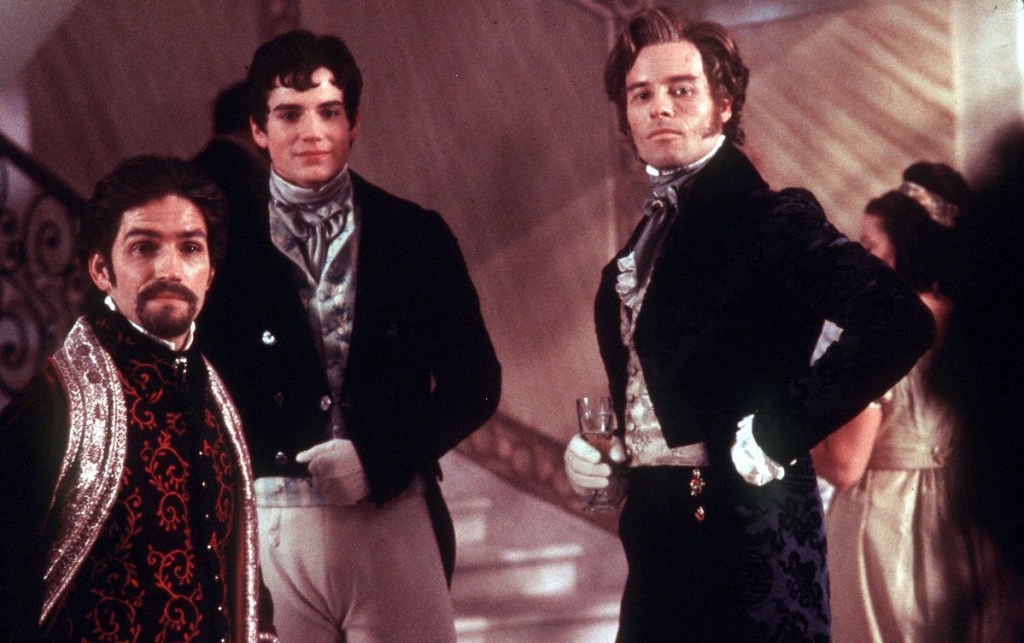
4. The Count Of Monte Cristo
To call The Count of Monte Cristo a good, old-fashioned action blockbuster sells it a long, long way short. Based on Alexandre Dumas’ often-adapted story of the same name, director Kevin Reynolds casts Jim Caviezel as an at first an innocent and trusting man who is betrayed by the brilliant Guy Pearce. Pearce proved he had movie-villain chops recently in Lawless, but here he’s far more three dimensional, and it’s one of his best three screen performances.
Caviezel’s Count finds himself locked up with Richard Harris, and his quest for revenge begins roughly there and culminates with him assuming the false identity of count. Director Reynolds sharpens the action tools he deployed well in Robin Hood: Prince of Thieves, and his approach fits this darker, tense movie.
The old-fashioned label The Count of Monte Cristo often gets bestowed with is testament to the fact that it doesn’t cheat. It has rounded characters, doing understandable things, and stages quality action sequences when required. It’s a really, really fun film, and–here comes the cliché–the kind of swashbuckler they really don’t make any more. One of the best action movies of the decade? It might just be…
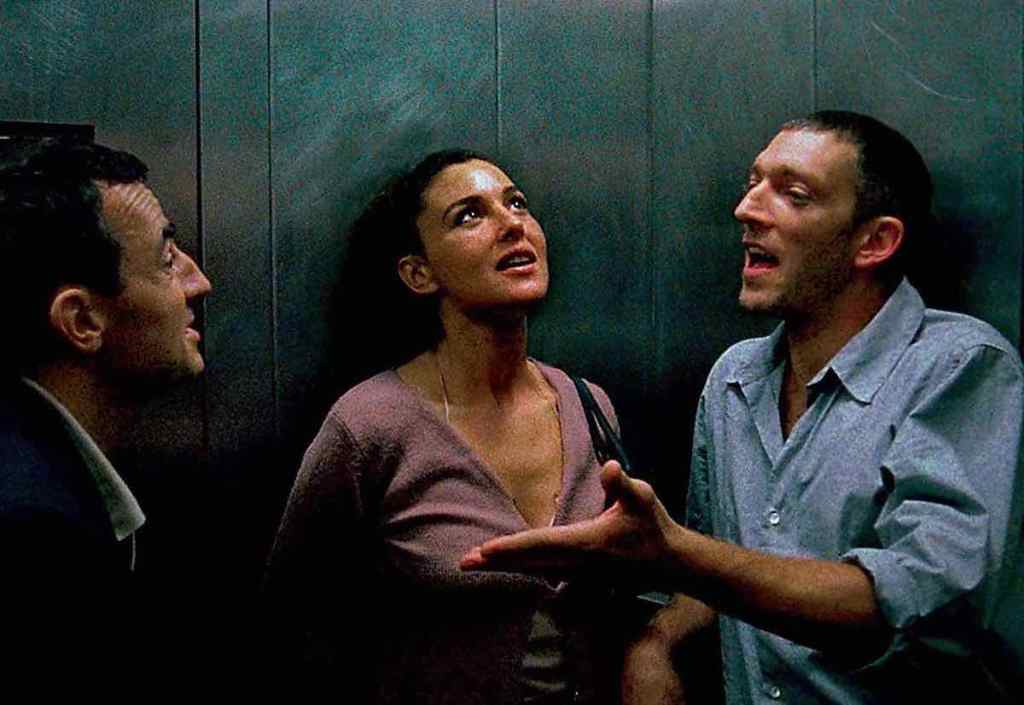
3. Irreversible
Described in some places as a mystery thriller, we’d argue that director Gaspar Noe’s Irreversible is more akin to a horror drama. Its use of sound, intense color, and dizzying framing and editing create a sense of unease before anything even happens, and its minimal story about rape and revenge is painfully difficult to watch. With its events shown in reverse order, effectively making the end the beginning and vice versa, Irreversible is a blood-curdling examination of how one terrible crime leads to another.
Vincent Cassel is excellent as a boyfriend blinded by fury while Monica Bellucci deserves a medal for her performance as his girlfriend. Harrowing from start to finish, Irreversible isn’t likely to be a film you’ll watch more than once, but its aggressive direction and imagery make it a difficult yet unforgettable experience.
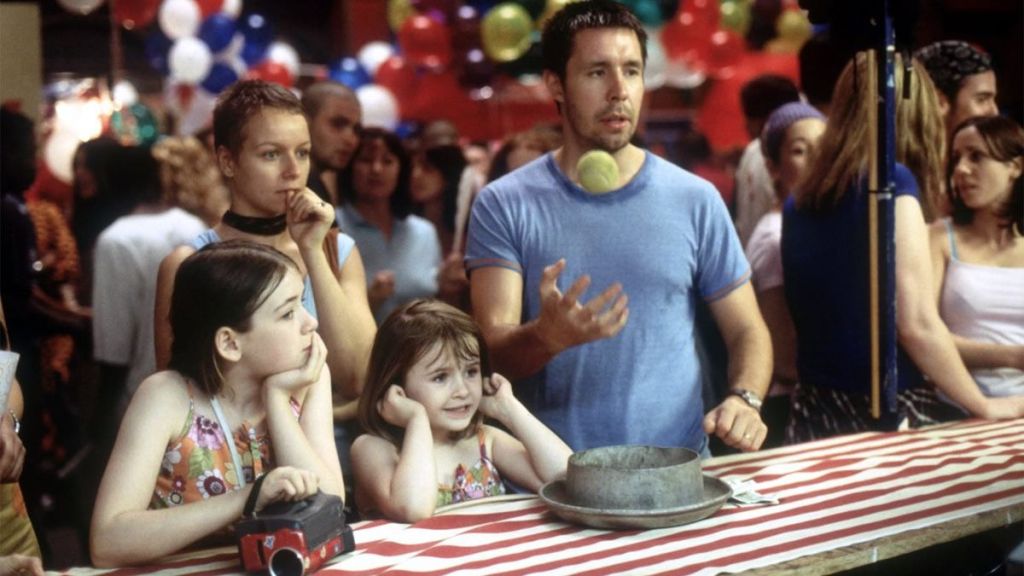
2. In America
There’s no shortage of love for the work of Paddy Considine around these parts, and In America is one of his most brilliant films. Directed by Jim Sheridan, he stars alongside the also-excellent Samantha Morton (who we’ll always love for turning up at the Oscars in a T-shirt), and the film follows them as a pair of Irish immigrants trying to make a new life in the U.S. following the death of their youngest.
Theirs is no idyllic story of finding a warm America waiting for them though, as they struggle to put their family unit back together in trying and testing circumstances. There’s one scene at the end in particular, a simple scene at a fairground, that’s utterly heartbreaking.
Sheridan is a wise enough director to not overplay the emotional cards though (he also wrote the script with his daughters, Kirsten and Naomi), and he finds pockets of warmth and a real quest for humanity in the film. Yet even saying that makes it sound trite, whereas In America simply couldn’t be better pitched. It’s played superbly well. If there was any justice, both leads would have snared Oscar nods for their work. It’s an accessible, excellent story of trying to find a way forward through pain. A fabulous, fabulous movie.
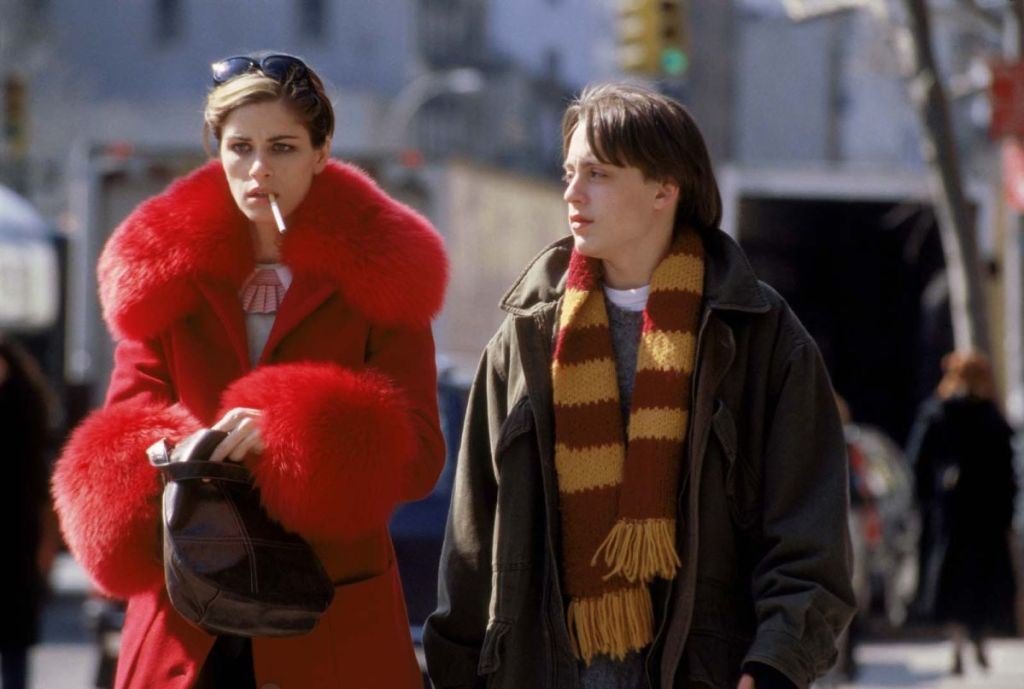
1. Igby Goes Down
What are the required ingredients for a classic drama? A great cast? A word-perfect script? Confident direction? Writer and director Burr Steers’ Igby Goes Down has all three, and is arguably, for our money, the best drama of 2002. Kieran Culkin exudes a certain grumpy, outsider charm as the Holden Caulfield-like Igby, a teenager whose life is made a misery by his dysfunctional extended family. Susan Sarandon plays his icy mother. Bill Pullman (who’s unusually cast yet excellent) plays his clinically depressed father. Jeff Goldblum plays his extraordinarily dislikable douchebag godfather.
Although Igby’s background is a privileged one, he’s essentially a normal teen rebelling against repression, whether it’s the brutal punishment he receives at his military academy school (one of several seats of learning he’s sent to and swiftly banished from) or the stifling expectations of his family.
Artfully walking the line between wry wit and emotional drama, Igby Goes Down is impeccably written and performed, with Culkin carrying the picture with ease. Barely making a ripple at the box office, it’s the very definition of an underrated movie: well-received by critics yet largely unheralded at awards ceremonies or in cinemas, it’s a quietly brilliant, hidden gem of a movie.